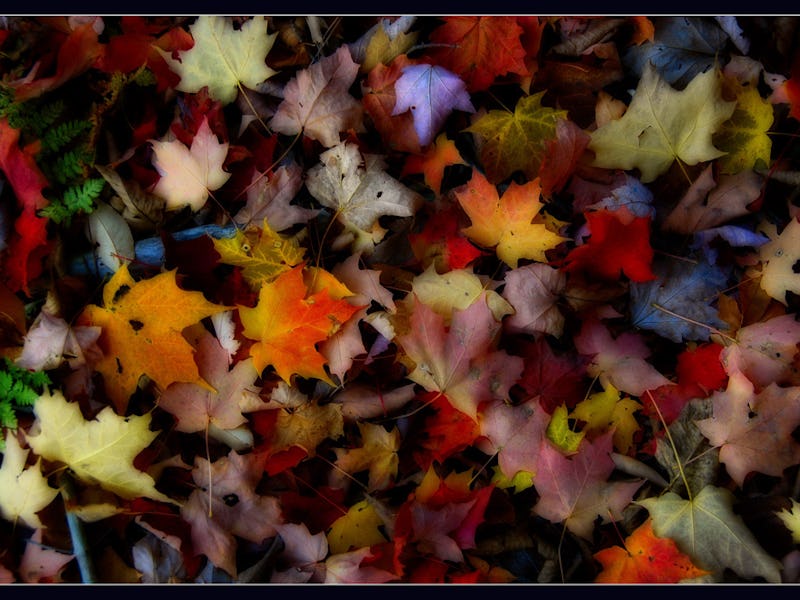Why Fall Smells Make Us Happy
Because of your happy memories! Because corporations pay scent consultants!

Starbucks had us wrapped around its pumpkin spice-dipped little finger as early as August. Febreze’s seductive fall slogan, “Mmm…smells like sweater weather,” handles the millions of homes smelling of “Apple Delish” and “Jolly Pine.” Yankee Candle’s approach to nasal season is only slightly more subtle: “Autumn in the Park” and “Crisp Morning Air” are on offer for $5.49. That’s a lot of marketing muscle being put toward making a season defined by decomposition into an olfactory event.
According to neuroscientist Dr. John McGann, the hype is less about turning the volume up on reality than stirring a virtuous cycle of happy memories. Our love of fall smells is less about the smells themselves and more about association. And when it comes to making memories, the scent of spiced desserts and firewood is pretty likely to override the reek of rotting pumpkin.
“There’s no pumpkin in pumpkin spice stuff, you know that?” McGann laughs. “But it includes all of the other things you associate with pumpkin and pumpkin pie.”
He’s not just talking about nutmeg, sugar, and cinnamon — he’s referring to the memories of fall afternoons spent baking with your grandmother, sipping hot cider, and being wrapped up in cozy sweaters. The warm and fuzzy ones the L.L. Bean catalog incepted into your brain as well. It’s well documented that the sense of smell and memory are closely linked. The smell of spiced desserts, the aroma of firewood, and the warm scent of vanilla might make us feel good, but they aren’t inherently pleasant. Deciding that is up to your brain.
When the hundreds of chemicals that make up “Jolly Pine” hit your nose, they trigger a cascade of signals that travel from the neurons in your nostrils to your brain’s sensory centers, taking detours through the amygdala and hippocampus, which process emotions and memories. Whether those associations end up being good ones depends on what’s happening at the time.
According to Rachel Beaver of ScentAir, a company that custom-blends scents for places like the Barclay Center and Westin Hotels, the scent business is about memories. “Usually, when you smell something it triggers a memory, and memories are what you find more enjoyable,” she says. “Or they could be bad. It could go both ways.”
For Big Smell, the purveyors of retail recall, making customers sniff is a way to reinforce brand associations. Fall smells good in part because a bunch of businesses write checks. It’s a group effort by corporate America and however you feel about that, well, that’s how you’ll feel the next time pine hits your nose.
Like other companies that specialize in fragrance, ScentAir has figured out the scents that trigger the good ones. “Hot Apple Pie” is the company’s most popular fall product. Other warm and woody smells — think cider, apple, spiced wine, and sandalwood — are the most likely to trigger the “standard” pleasant fall memories, like holiday get togethers and seeing old friends on campus.
Still, fall smells aren’t for everybody. For some students, late nights spent chatting around the quad fireplace are absolutely miserable. Thanksgiving, for all its warm, pumpkin-scented glory, can also be incredibly stressful. Maybe you’re still nursing a third-degree burn from a scalding #PSL. But there’s no denying the ubiquity of fall scents, which just goes to show: Most of us are just suckers for memories, whether real or imagined.
One man’s memories are another man’s marketing.